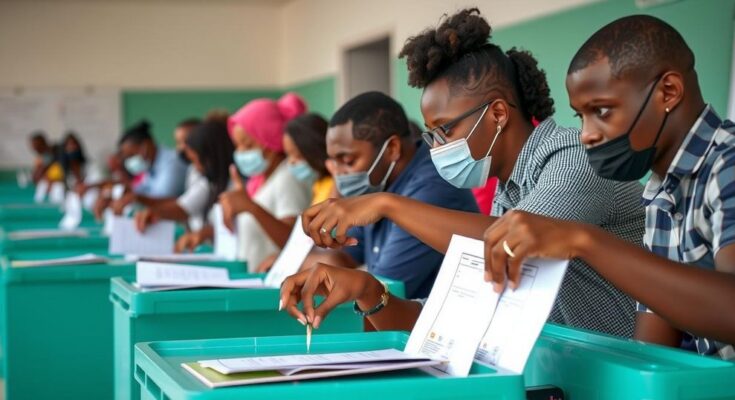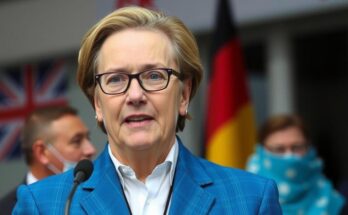Comoros voters are electing a new 33-seat parliament amid allegations of electoral misconduct from the opposition. Approximately 338,000 individuals are registered to vote. The election follows President Azali Assoumani’s controversial re-election and his son’s new governmental powers. Opposition parties are deeply divided over participation, with calls for boycott from some factions. Results will be disclosed by Friday.
Voters in Comoros convened to participate in the election of the archipelago’s 33-seat parliament, following the contentious re-election of President Azali Assoumani last year, which was marred by allegations of irregularities from the opposition. Despite the ruling party’s refutations of these claims, the atmosphere surrounding the elections is charged with political tension. Polling stations welcomed approximately 338,000 registered voters as they opened on Sunday, marking a significant electoral moment for the nation. The last parliamentary elections in Comoros occurred in January 2020, and this election features nearly 100 candidates who were approved by the Supreme Court to compete.
The Republic of Comoros, an archipelago situated in the Indian Ocean, has been under the leadership of President Azali Assoumani since 1999 when he seized power through a coup. His tenure has often been criticized, with accusations of authoritarian governance and attempts to establish a dynastic rule involving his son, Nour El-Fath. Following Assoumani’s significant grant of powers to his son in 2024, concerns among the opposition regarding the integrity of upcoming elections have intensified. Some opposition factions, particularly Juwa, spearheaded by former President Ahmed Abdallah Sambi, have advocated for a boycott of these elections, while others have chosen to contest.
The elections in Comoros represent a pivotal moment amidst ongoing debates regarding governance and electoral integrity. As voters engage with the electoral process, the outcome will reflect the current political landscape, including opposition dynamics and public sentiment toward President Assoumani’s administration. The results, anticipated by Friday, will be indicative of not only the political climate but also the future direction of leadership in Comoros, particularly given the history of alleged electoral irregularities.
Original Source: www.armidaleexpress.com.au




